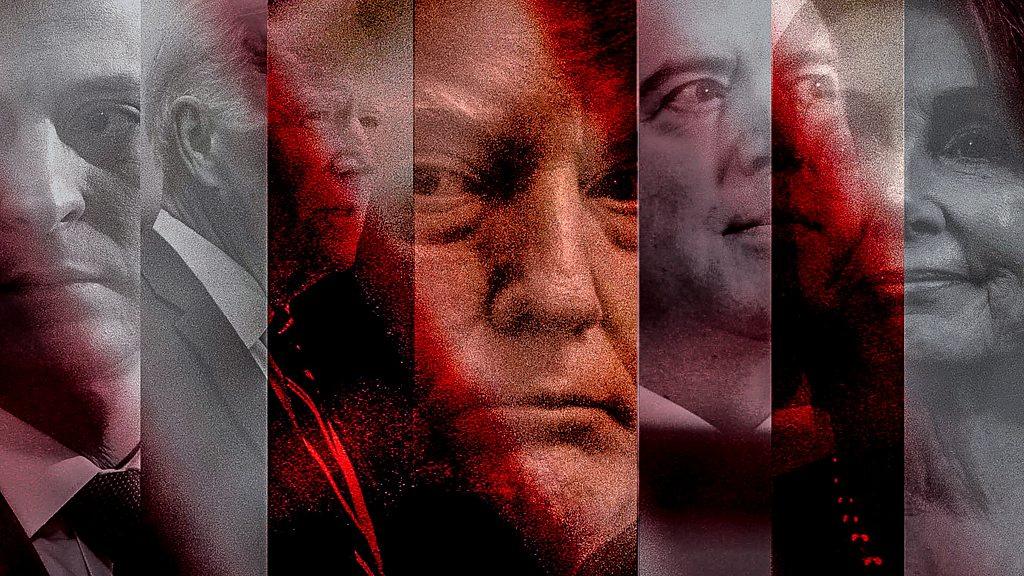Does shock Buttigieg lead in Iowa mean anything?
- Published
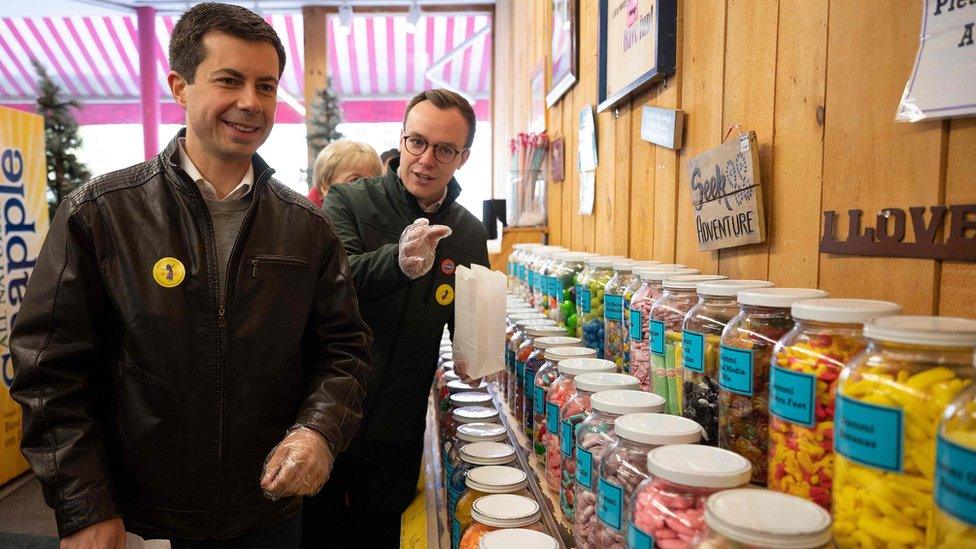
It was the poll heard round the world - or at least the US political world.
On Saturday, the Des Moines Register released a mid-November survey of Iowa Democratic voters that had South Bend Mayor Pete Buttigieg in a comfortable lead among candidates in the state's first-in-the-nation presidential nomination caucuses.
The mayor of Indiana's fourth-largest city stood at 25%, followed by Senator Elizabeth Warren with 16%, and Senator Bernie Sanders and former Vice-President Joe Biden tied at 15%. The survey's margin of error was 4.4%.
The results represent a remarkable surge for Buttigieg, who posted 9% in the Register's September survey. The 37-year-old also had the highest favourability rating of any Democrat in the field, with 72% of likely Democratic caucus-goers having either a very or mostly favourable view of the candidate.
A March Register poll showed 73% either weren't sure or didn't know what they thought of Buttigieg, so the more Iowans see of him, the more they seem to like.
Buttigieg's rise appears to have come at the expense of Warren, who dropped 6% since September, and Biden, who is down 5%.
Even though another Iowa poll showed a much closer race, with Buttigieg in a dead heat with Sanders and Biden, the take-away is clear. Buttigieg, who was a political unknown a year ago, is gaining support and should be considered among the front-runners - at least in Iowa, which carries an outsize significance in the Democratic presidential nominating process.
He's shown he can fundraise as well or better than any of the other candidates, and is rapidly expanding his campaign organisation in Iowa and across the US. Once it gets closer to the voting, he has the resources to dominate the television airwaves with campaign advertisements.
How to pitch yourself to Iowa voters in five minutes
"That's extremely encouraging, obviously," Buttigieg told reporters at a candidate event in California after the Des Moines survey came out. "At the same time, there's a long way to go, and there are a lot of states in this process."
With the Iowa caucuses set for 3 February, there is indeed a long way to go - and the Register poll showed that nearly two-thirds of Iowa Democrats who expressed a preference for a candidate "could be persuaded" to change their minds.
What's more, the state has traditionally rewarded candidates who get hot late in the process. In a November 2003 Des Moines Register poll, Democrat John Kerry - the eventual Iowa winner - trailed Missouri Congressman Dick Gephardt by 12%. In October 2015, neurosurgeon Ben Carson had a Buttigieg-size lead over the Republican field, 28% to Donald Trump's 19%.
When Iowans finally cast their ballots, Carson finished a distant fourth behind Ted Cruz, Trump and Marco Rubio, with only 9%.
Buttigieg has other concerns besides finding a way to keep his Iowa momentum going, too. While his poll numbers there are encouraging, the surge has not been replicated on a national level. Even more troubling, while he's looking good in Iowa and New Hampshire, in later-voting states that have a diverse electorate that more accurately reflects the composition of the modern Democratic Party, Buttigieg's support is moribund.
'Voters will care about my ideas, not that I'm gay'
In South Carolina, for instance, Buttigieg sits in fifth place, at 6.7% in the RealClearPolitics polling average. A just-released Quinnipiac poll, external had Buttigieg at 6% there, with less than 1% support from the state's black Democrats. Several other recent surveys, external had Buttigieg at 0% among blacks.
While Buttigieg has tried to reach out to black voters, some of his efforts have risked backfiring. His campaign released its Douglass Plan - named after US Civil War abolitionist Frederick Douglass - to combat racism, but used a stock photo of a Kenyan woman, external to promote it on its website. It also listed the names of 400 South Carolinians who supported the plan in a way that made it seem they had endorsed Buttigieg's presidential bid - many hadn't.
There has also been a bit of a social media kerfuffle over a 2017 photograph, external - posted on the Instagram page of Buttigieg's husband, Chasten - of the candidate posing coyly at the Holocaust Memorial in Berlin, with the caption "This guy".
That's just a taste of the kind of scrutiny in store for Buttigieg now that Iowa polls put him firmly in the top tier of presidential candidates.
There's already been some grumbling from other candidates about Buttigieg's outsized success given what they see as a thin political resume.
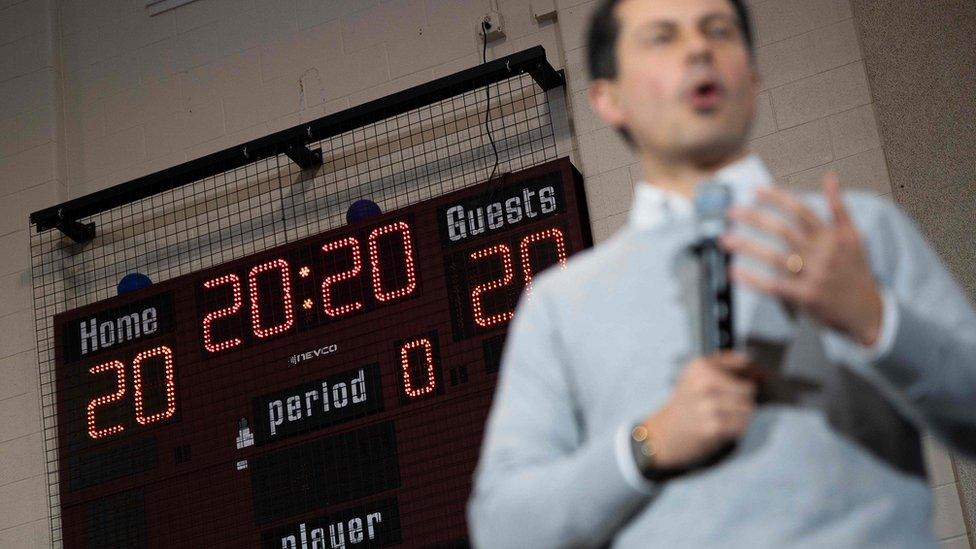
Eight days ago, Minnesota Senator Amy Klobuchar said that she and the other female presidential candidates would never have been able to run credible presidential campaigns with Buttigieg's level of experience.
"Do I think we would be standing on that stage if we had the experience he had?" she asked in a television interview. "No, I don't. Maybe we're held to a different standard."
Former Obama administration cabinet secretary Julian Castro also had a blunt assessment of his fellow candidate.
"It is very risky to nominate a candidate that can't attract black and Latino voters," Castro told the New York Times. "He's going by the old playbook of following the focus groups, going by what political consultants tell you. If we've learned anything from Donald Trump, unfortunately in a bad way, it's that focus grouping and poll testing ain't the way that you're going to win."
Given this context, Buttigieg may be in for a tough time, external when the Democrats take the stage at the next presidential debate in Atlanta on Wednesday. Every time a candidate appears to be surging - whether it's Biden, Harris or Warren - they've eventually become a lightning rod for opponent attacks.
Buttigieg could be a particularly ripe target for candidates like Klobuchar and Cory Booker, who view his appeal to moderate Democratic as obstructing their electoral path, or Warren, who polls indicate is competing with the mayor for white, college-educated voters.
In the weeks ahead, Buttigieg may find that climbing to the top of the candidate heap was the easy part. Staying there will be hard.

Who will take on Trump in 2020?

Election day is less than a year away and the race to become the Democratic challenger to Mr Trump is in full swing.
- Published14 November 2019
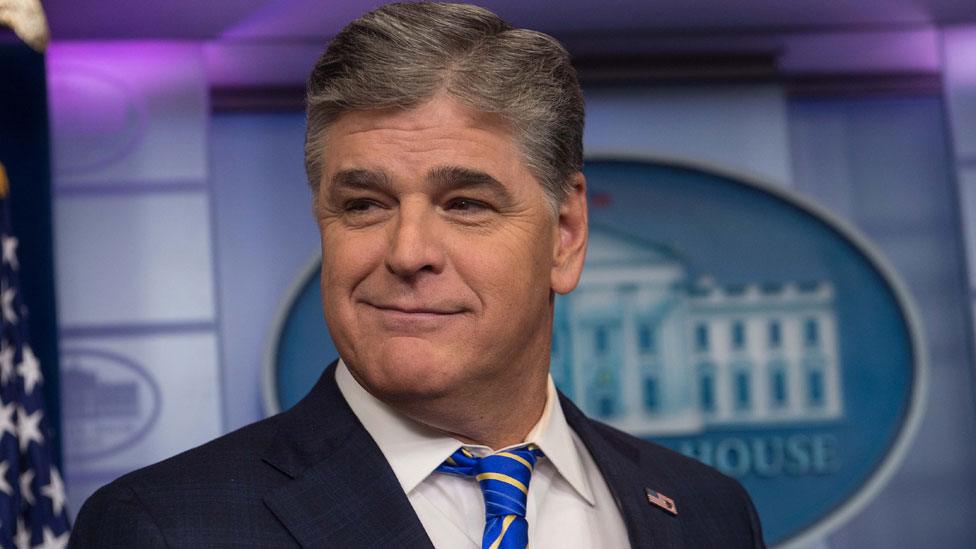
- Published15 November 2019
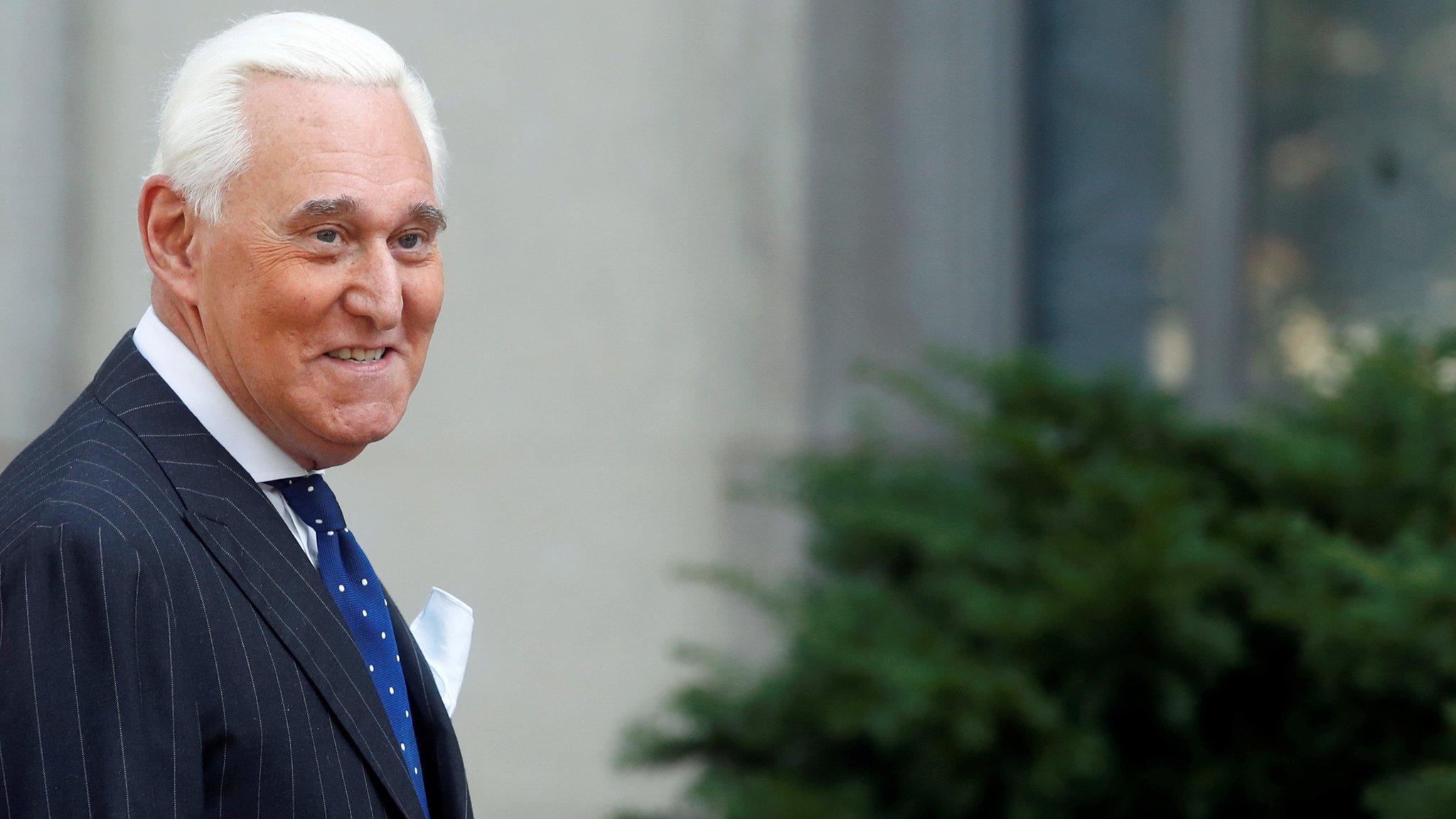
- Published14 November 2019
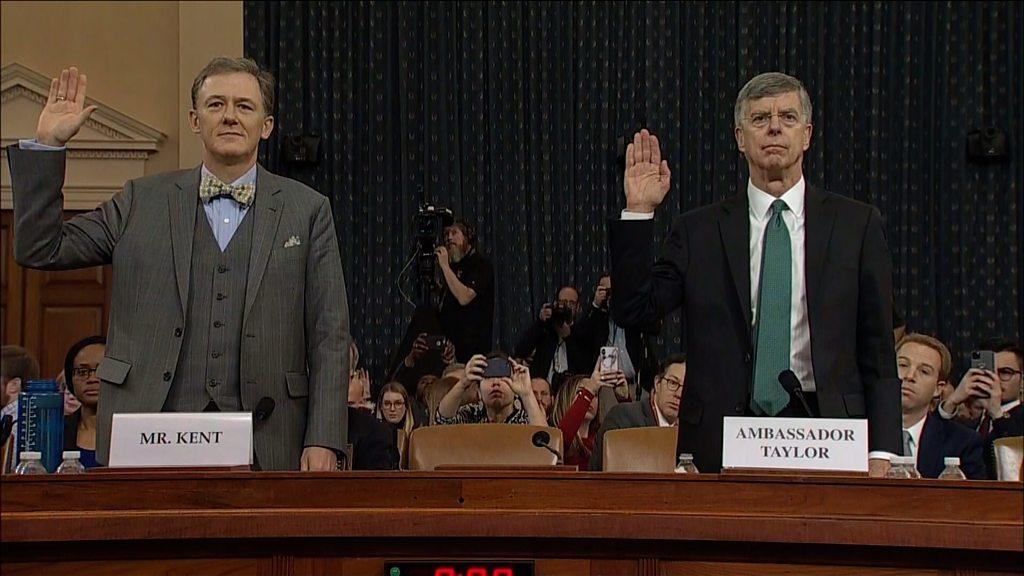
- Published13 November 2019
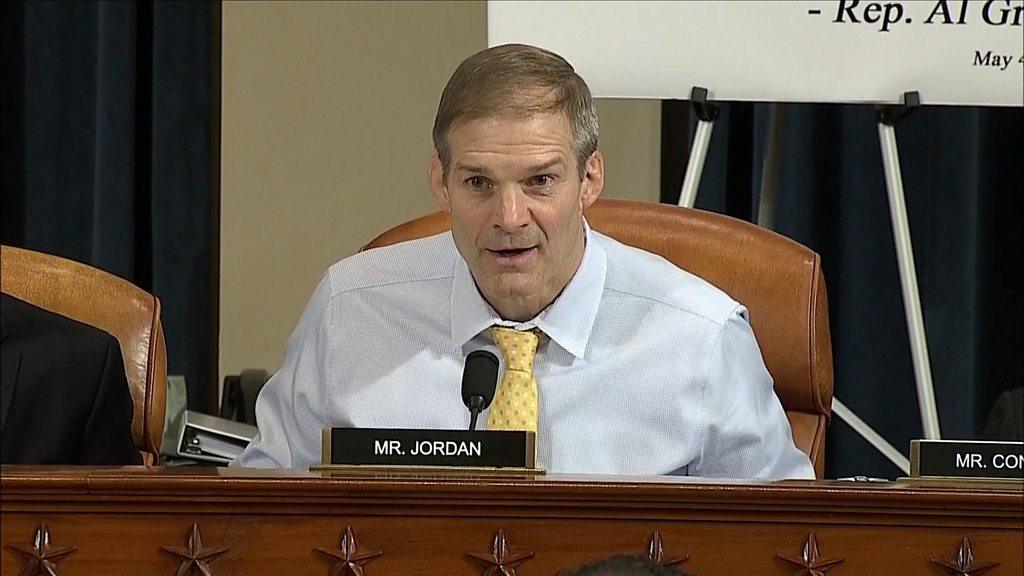
- Published14 November 2019
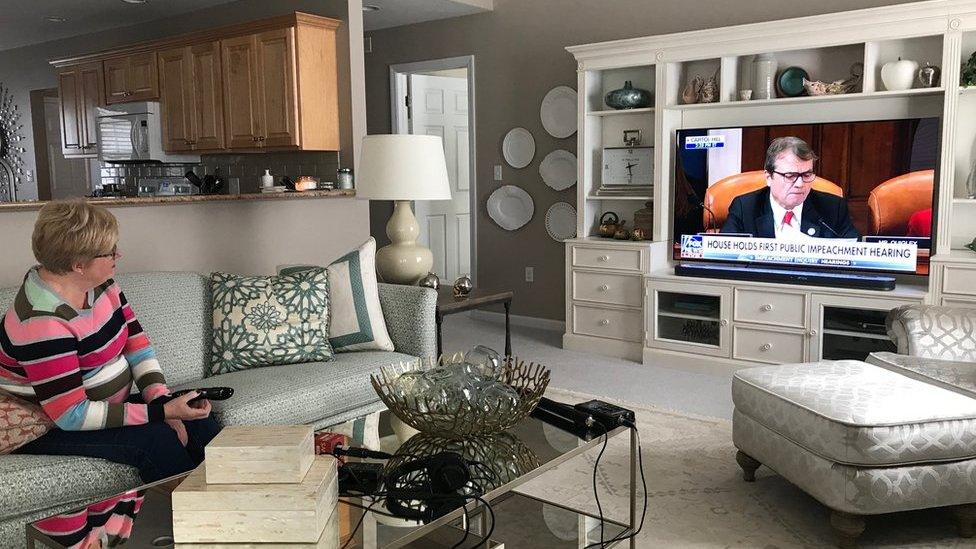
- Published14 November 2019
